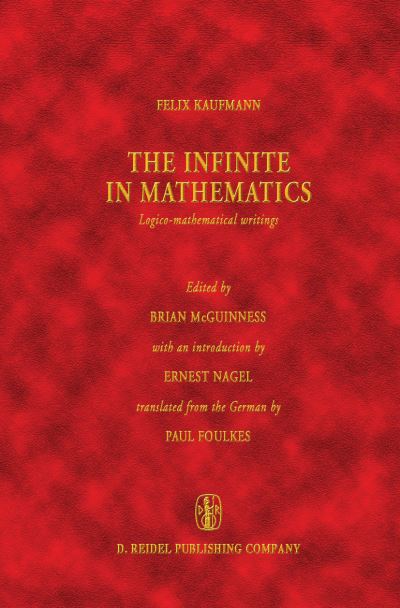
The main item in the present volume was published in 1930 under the title Das Unendliche in der Mathematik und seine Ausschaltung. It was at that time the fullest systematic account from the standpoint of Husserl's phenomenology of what is known as 'finitism' (also as 'intuitionism' and 'constructivism') in mathematics. Since then, important changes have been required in philosophies of mathematics, in part because of Kurt Godel's epoch-making paper of 1931 which established the essential in- completeness of arithmetic. In the light of that finding, a number of the claims made in the book (and in the accompanying articles) are demon- strably mistaken. Nevertheless, as a whole it retains much of its original interest and value. It presents the issues in the foundations of mathematics that were under debate when it was written (and in some cases still are); , and it offers one alternative to the currently dominant set-theoretical definitions of the cardinal numbers and other arithmetical concepts. While still a student at the University of Vienna, Felix Kaufmann was greatly impressed by the early philosophical writings (especially by the Logische Untersuchungen) of Edmund Husser!' He was never an uncritical disciple of Husserl, and he integrated into his mature philosophy ideas from a wide assortment of intellectual sources. But he thought of himself as a phenomenologist, and made frequent use in all his major publications of many of Husserl's logical and epistemological theses.
| ISBN: | 9789027708489 |
| Publication date: | 31st August 1978 |
| Author: | Felix Kaufmann |
| Publisher: | Springer an imprint of Springer Netherlands |
| Format: | Paperback |
| Pagination: | 237 pages |
| Series: | Vienna Circle Collection |
| Genres: |
Philosophy of science Mathematical logic Mathematical foundations |